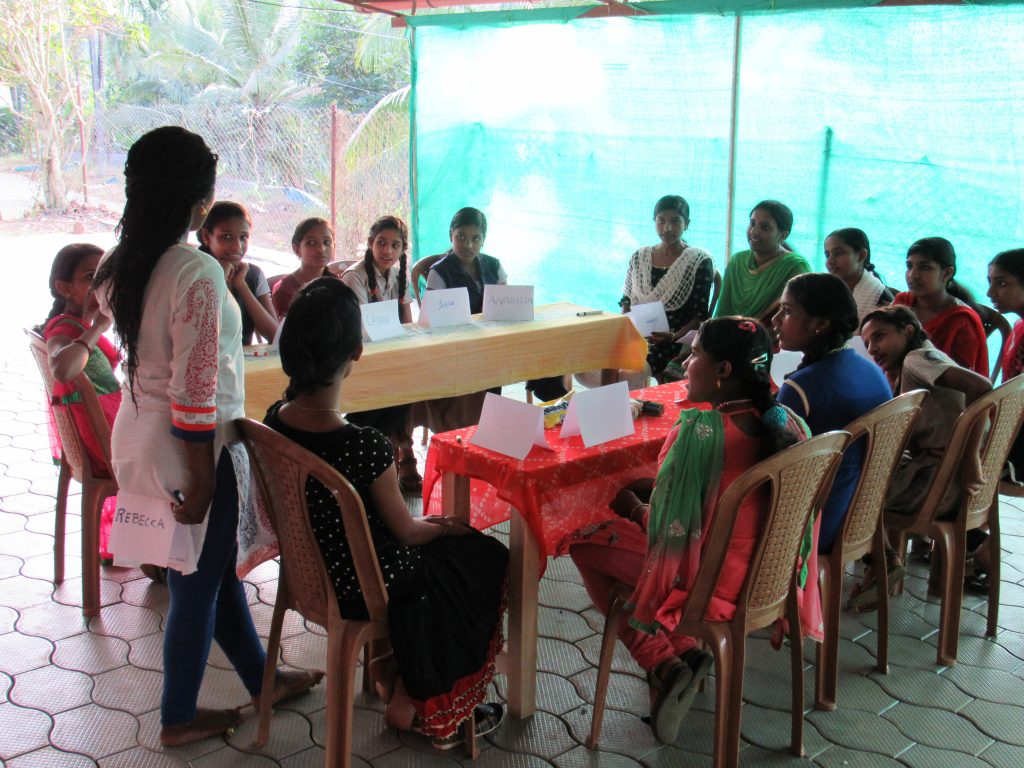In response to bad things happening in the world, everyone’s favorite neighbor, Mister Rogers, used to say “Look for the helpers. You will always find people who are helping.” It seems that now, more than ever, these words are a good piece of advice. In this entry, I’d like to highlight the helpers of the world-helpers like P rofugo-and the evolving ways in which everyone can provide service to others.
rofugo-and the evolving ways in which everyone can provide service to others.
Helping others, scientifically known as pro-social behavior, is a part of our biological makeup. Such behavior has been observed in humans since the beginning of time-native peoples had such strong communal ties that helping others often served as a means of survival [1]. Over time, however, we as humans lost this strong sense of community and began categorizing each other. We began putting names to things and people with which we were unfamiliar. This labeling can be detrimental to the effort of living in harmony with our fellow man. It divides us, making us see the differences between us over the commonalities that bind us. On my first day as an intern, I watched a video highlighting the mission of Profugo. This video not only explained what Profugo is all about, but it also showed that regardless of where we come from, we as human beings share similar values. As parents, we want our children to have more opportunities than we had. As children, we want to make our parents proud. And as humans, we want to do good for the world and be happy.
So, what does this have to do with helping others? Research shows that we are actually more inclined to help those in need if we can identify with them. An experiment conducted in the UK involving fans of the Manchester and Liverpool football teams illustrates that when we expand our definition of who we are in comparison to others, we are likely to help more people [2]. It also shows our perception of the differences and similarities among humans is just that-a perception. We can control how we view others. We can decide to see what makes us similar to a person from a different culture, religion, race, or country. Or, we can notice only the differences. The choice is ours.
Once we’ve made the decision to help, the question turns to how. Every year, the Bureau of Labor and Statistics releases a report regarding volunteerism in the U.S. The volunteer rate seems to be on the decline-most recently falling to 24.9%, a decline of 0.4.percentage point. This decline in volunteerism can seem devastating. However, the BLS reports do not account for the change in what service looks like. The BLS defines volunteers as “persons who did unpaid work…through or for an organization.” This definition narrows the scope of what it means to help others [3]. Less tangible forms of aid can get lost in the mix of statistics and government reports, making it seem as though people are not as other-oriented as they once were. For example, following a storm in Georgia one resourceful citizen used the power of the internet and social media to mobilize 50,000 people to coordinate hundreds of rescues via a Facebook group. Despite being the perfect example of the selfless spirit most people embody when tragedy strikes, this act of service would go unnoticed by official reports along with participation in crowdfunding websites, online petitions, and efforts to sustain ethical consumerism [4].
Profugo offers ways to be involved in bettering the global community that reflect this evolution in the look of volunteering. Individuals can participate in the Field Fellow program in which they spend up to a year working to execute various community development projects initiated by Profugo in India. One can intern at Profugo’s office in Ardmore working on program development, grant writing and researching, and other supportive tasks. For those who may not have the time to give there is always the option of being mindful when it comes to spending money. The Profugo Store features accessories handmade by women involved in our Tailoring Training Program-100% of the profits from the Profugo Store go directly to funding community projects.
As someone with varied volunteering experiences -from working at a pediatric hippotherapy facility to a summer camp for children battling cancer-I can personally attest to the fact that volunteering and helping others are reciprocal actions benefitting the givers just as much as, if not more than, the receivers. I am encouraged by the fact that despite popular opinion, it seems we are not becoming less other-oriented as a society. Rather the look of volunteerism and service is simply changing. And in a world that seems to be becoming increasingly divided it would do a lot of good to channel that innovative spirit and focus on what unites, rather than divides, us.
Sources:
[1] https://www.learningtogive.org/resources/prosocial-behavior [2] https://www.gsb.stanford.edu/insights/francis-flynn-what-makes-people-want-help-others [3] https://www.bls.gov/news.release/volun.htm [4] https://www.usatoday.com/story/opinion/2014/03/21/america-volunteers-community-service-millennials-column/6627419/

Leave a Reply
You must be logged in to post a comment.